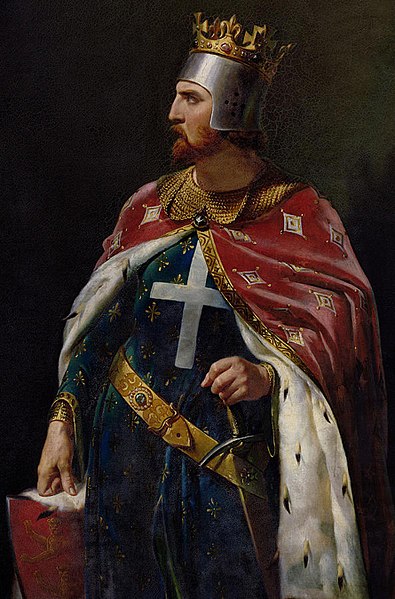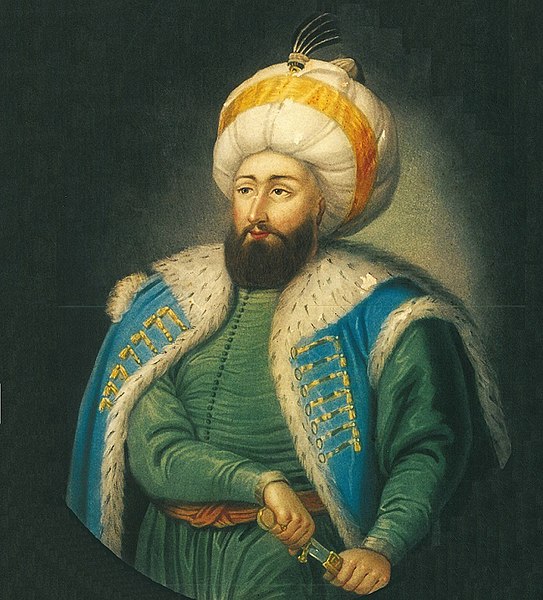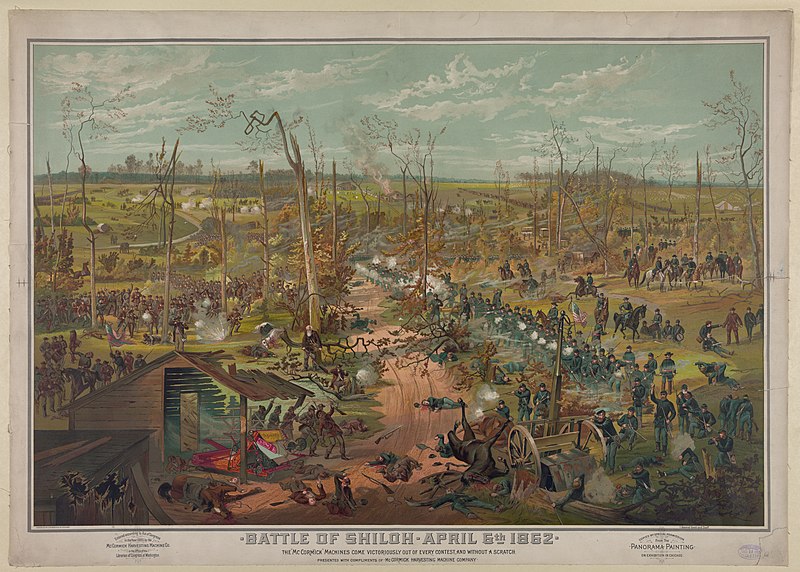On April 6, through the annals of history, the world has witnessed a remarkable array of events that have shaped societies, altered the course of nations, and transformed the very fabric of our global narrative.
From the decisive battles that underscored the waning power of empires to groundbreaking achievements in exploration, science, and culture, this date stands as a testament to human resilience, ingenuity, and the relentless pursuit of progress.
Join us as we embark on a chronological journey through time, revisiting 20 pivotal moments that occurred on April 6 – each a thread in the intricate tapestry of our shared pas
April 6th Events in History
AD 402 – Stilicho defeats the Visigoths under Alaric in the Battle of Pollentia
The Battle of Pollentia was a crucial confrontation between the Roman Empire and the Visigothic forces led by King Alaric. Stilicho, serving as the magister militum (master of the soldiers) for the Western Roman Empire, managed to intercept and decisively defeat the Visigoths on April 6, 402.
This battle is significant because it marked one of the few times the Roman forces were able to successfully repel the Germanic invaders during the late Roman Empire.
Also Read: April 5 – On this Day in History
The victory at Pollentia temporarily halted the southward advance of the Visigoths into Italy, showcasing Stilicho’s military prowess and temporarily stabilizing the Western Roman Empire’s territories.

AD 1199 – King Richard I of England dies from an infection following the removal of an arrow from his shoulder
King Richard I of England, also known as Richard the Lionheart, died on April 6, 1199, from an infection that developed after an arrow wound he received during the siege of the castle of Châlus-Chabrol in France was improperly treated.
Richard was a central Christian commander during the Third Crusade and was renowned for his bravery and military leadership.
Also Read: April 7th Events in History
His death marked the end of a reign that was dominated by his military campaigns, including the famous Crusades in the Holy Land, and it initiated a period of instability in England as the succession was disputed between his brother John and his nephew Arthur.
AD 1320 – The Scots reaffirm their independence by signing the Declaration of Arbroath
The Declaration of Arbroath was a letter submitted to Pope John XXII on April 6, 1320, by the nobles and clergy of Scotland to affirm Scotland’s status as an independent, sovereign state and to defend Scotland’s right to use military action when unjustly attacked.
It is often cited as a statement of Scotland’s national identity and a significant early expression of the concept of popular sovereignty – the idea that the monarch is subject to the will of the people. This document played a crucial role in the First War of Scottish Independence against England.
AD 1453 – Mehmed II begins his siege of Constantinople (Istanbul), which falls on May 29
The siege of Constantinople, which lasted from April 6 to May 29, 1453, marked the culmination of the Ottoman Empire’s campaign to conquer the capital of the Byzantine Empire.
This event is significant because it led to the fall of Constantinople, a pivotal moment in world history that effectively ended the Byzantine Empire, altering the balance of power in the Mediterranean and paving the way for the Ottoman Empire’s expansion into Eastern Europe.
The siege is renowned for the massive use of cannons and gunpowder, technologies that were revolutionary at the time and signaled a shift in siege warfare.

AD 1652 – Dutch sailor Jan van Riebeeck establishes a resupply camp that eventually becomes Cape Town, South Africa
On April 6, 1652, Jan van Riebeeck, a Dutch navigator and colonial administrator, established a victualling station at the Cape of Good Hope on behalf of the Dutch East India Company (VOC). This station was intended to serve as a resupply stop for Dutch ships traveling to and from the East Indies.
Over time, this camp evolved into Cape Town, the first permanent European settlement in South Africa. The establishment of Cape Town played a crucial role in the development of trade routes between Europe and Asia and marked the beginning of significant European influence and settlement in Southern Africa.
AD 1712 – The New York Slave Revolt of 1712 begins near Broadway
The New York Slave Revolt of 1712 was a significant insurrection by enslaved Africans in New York City. It occurred on the night of April 6, when a group of about 23 enslaved men set fire to a building near Broadway and then ambushed the white settlers who came to put out the fire.
The revolt resulted in the deaths of nine whites and the injury of another six. In the aftermath, the colonial authorities executed 21 Africans by burning them at the stake, hanging, or breaking them on the wheel.
This revolt led to the imposition of more stringent laws governing the lives of enslaved people in New York, reflecting the growing fears among white colonists regarding the potential for slave uprisings.
AD 1782 – King Buddha Yodfa Chulaloke (Rama I) of Siam (modern day Thailand) founds the Chakri dynasty
On April 6, 1782, General Chao Phraya Chakri ascended to the throne of Siam (now Thailand) as King Rama I, founding the Chakri dynasty, which continues to reign in Thailand to this day.
Rama I moved the capital from Thonburi to Bangkok and initiated the construction of the Grand Palace, establishing Bangkok as the political and cultural heart of Thailand.
His reign marked the beginning of the modern era of Thai history, during which the country would successfully navigate the colonial pressures that engulfed neighboring Southeast Asian nations.
AD 1808 – John Jacob Astor incorporates the American Fur Company, that would eventually make him America’s first millionaire
John Jacob Astor, an American businessman, founded the American Fur Company on April 6, 1808. This enterprise quickly grew to dominate the fur trade in the United States, becoming one of the largest and most lucrative businesses of the early 19th century.
Astor’s company capitalized on the demand for beaver pelts used in hat making in Europe and the eastern U.S., and its operations extended across the Great Lakes, the Rocky Mountains, and into the Pacific Northwest.
The success of the American Fur Company played a significant role in the exploration and expansion of the American frontier, and it contributed to Astor becoming one of the first multi-millionaires in the United States.
AD 1830 – The Church of Jesus Christ of Latter-day Saints is organized by Joseph Smith in western New York
On April 6, 1830, Joseph Smith founded The Church of Jesus Christ of Latter-day Saints (LDS Church) in Fayette, New York, after publishing the Book of Mormon earlier that year. The church was established as a restoration of the original church founded by Jesus Christ, according to Smith.
The early years of the LDS Church were marked by significant persecution and migration, leading its members to move westward across the United States, eventually settling in what is now Utah.
Today, the LDS Church has grown to become a significant religious and cultural force, with millions of members worldwide.
AD 1862 – American Civil War: The Battle of Shiloh begins – in Tennessee
The Battle of Shiloh, one of the early and significant battles of the American Civil War, began on April 6, 1862, in southwestern Tennessee. Over two days, Union and Confederate forces clashed in a bloody conflict that resulted in over 23,000 casualties, making it one of the deadliest battles in the war up to that point.
The battle ended with a Union victory, giving them control of the Mississippi Valley and marking a turning point in the Union’s Western Campaign. The high number of casualties shocked both the North and the South, signaling the long and brutal nature of the conflict that was to come.

AD 1896 – The first modern Olympic Games open in Athens, Greece
The first modern Olympic Games were officially opened on April 6, 1896, in Athens, Greece, reviving the ancient Olympic tradition that had been dormant for nearly 1,500 years.
Spearheaded by French educator and historian Baron Pierre de Coubertin, the Olympics aimed to foster peace and understanding among nations through sports.
The 1896 Athens Olympics featured 241 athletes from 14 nations, competing in 43 events across nine sports. The Games were a significant success, marking the beginning of the modern Olympic movement, which continues to bring together athletes from all over the world in the spirit of competition and mutual respect.
AD 1909 – Robert Peary and Matthew Henson reach the North Pole
On April 6, 1909, American explorer Robert Peary and his team, including Matthew Henson, an African American explorer who played a crucial role, and four Inuit men, Ooqueah, Ootah, Egingwah, and Seegloo, claimed to have reached the North Pole.
Their achievement was hailed as a major milestone in exploration, though it has been subject to controversy and doubt regarding their exact location.
Regardless, Peary and Henson’s expedition marked a significant moment in the history of polar exploration, highlighting the human spirit’s determination to explore the unknown.
AD 1917 – World War I: The United States declares war on Germany
On April 6, 1917, the United States declared war on Germany, entering World War I after three years of neutrality. This decision was influenced by several factors, including the unrestricted submarine warfare practiced by Germany and the Zimmermann Telegram, in which Germany proposed a military alliance with Mexico against the U.S.
The entry of the United States into the war provided the Allied Powers with critical military support and resources, ultimately contributing to the defeat of the Central Powers. The U.S. involvement in WWI marked a significant turning point in the war and in American foreign policy, signaling the United States’ emergence as a world power.
AD 1924 – First round-the-world flight commences
On April 6, 1924, the first attempt to circumnavigate the globe by air began with eight U.S. Army Air Service pilots and mechanics setting out in four Douglas World Cruiser biplanes, named Boston, Chicago, New Orleans, and Seattle. The mission aimed to demonstrate the reliability of aircraft and the possibility of air travel around the world.
The journey covered about 27,550 miles and took 175 days, concluding successfully in Seattle on September 28, 1924. This pioneering aviation endeavor showcased the potential of air travel and marked a significant milestone in the history of flight.
AD 1930 – Gandhi raises a lump of mud and salt and declares, “With this, I am shaking the foundations of the British Empire,” beginning the Salt March
On March 12, 1930, Mahatma Gandhi initiated the Salt March, a nonviolent protest against the British salt monopoly in colonial India. The march concluded on April 6, 1930, when Gandhi reached the Arabian Sea coast at Dandi and symbolically violated the British law by producing salt from seawater.
This act of civil disobedience mobilized millions of Indians across the country to participate in the fight for independence. The Salt March is considered a pivotal event in the Indian independence movement, demonstrating the power of nonviolent resistance and significantly undermining British authority in India.
AD 1941 – World War II: Germany invades Yugoslavia and Greece
On April 6, 1941, Germany launched an invasion of Yugoslavia and Greece, marking a pivotal moment in the Balkans campaign during World War II. This offensive was part of Hitler’s strategy to secure his southern flank before launching the invasion of the Soviet Union.
The rapid and brutal campaign led to the quick defeat of Yugoslav and Greek forces. Yugoslavia was dismembered, and Greece fell by the end of April, with significant portions of both countries being occupied by Axis powers.
This expansion further demonstrated the aggressive nature of Nazi expansionism and reshaped the geopolitical landscape of Southeast Europe, leading to years of occupation, resistance, and atrocities.
AD 1968 – The 2001 A Space Odyssey movie is released in the United States
Directed by Stanley Kubrick and co-written with Arthur C. Clarke, “2001: A Space Odyssey” was released on April 6, 1968, in the United States. The film is a seminal work in science fiction, renowned for its innovative special effects, profound narrative, and ambitious depiction of space exploration.
Its themes of existentialism, artificial intelligence, and humanity’s place in the universe have made it a subject of much analysis and interpretation. The movie’s iconic imagery, such as the monoliths and the character HAL 9000, has left a lasting impact on popular culture and the development of the sci-fi genre in cinema.
AD 1974 – The Swedish pop band ABBA wins the Eurovision Song Contest with the song “Waterloo”, launching their international career
ABBA, a Swedish pop group, won the Eurovision Song Contest on April 6, 1974, with their hit song “Waterloo.” This victory catapulted the band to international fame, marking the beginning of a highly successful career.
ABBA’s catchy tunes, harmonious vocals, and distinctive pop sound led to a string of hits throughout the 1970s and early 1980s, making them one of the best-selling music artists of all time. “Waterloo” itself became a global sensation, and ABBA’s success at Eurovision is often cited as one of the most memorable moments in the contest’s history.
AD 1994 – The Rwandan Genocide begins when the aircraft carrying Rwandan President Juvénal Habyarimana and Burundian President Cyprien Ntaryamira is shot down
The Rwandan Genocide, one of the most tragic episodes of mass violence in the 20th century, began on April 6, 1994. The immediate catalyst was the shooting down of the plane carrying Rwandan President Juvénal Habyarimana and Burundian President Cyprien Ntaryamira, both Hutus, as it approached Kigali.
This event triggered a pre-planned campaign of violence by Hutu extremists, targeting Tutsis and moderate Hutus.
Over approximately 100 days, an estimated 800,000 to 1 million Tutsis and politically moderate Hutus were killed. The genocide ended when the Tutsi-dominated rebel group, the Rwandan Patriotic Front (RPF), took control of the country. The aftermath left Rwanda devastated and the world community questioning its failure to intervene.
AD 2009 – A 6.3 magnitude earthquake strikes near L’Aquila, Italy, killing 307
On April 6, 2009, a 6.3 magnitude earthquake hit the Abruzzo region near L’Aquila, Italy, resulting in significant destruction and the loss of 307 lives. The quake caused extensive damage to the historic city of L’Aquila and surrounding areas, rendering tens of thousands of people homeless and leading to a prolonged recovery and rebuilding process.
The disaster raised questions about building standards in seismic zones and the effectiveness of Italy’s preparedness and response mechanisms to seismic events.
The L’Aquila earthquake is remembered as one of the deadliest quakes in Italy’s recent history, highlighting the challenges of protecting ancient cities and populations in earthquake-prone regions.
